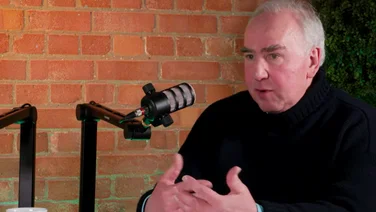We receive a small fee from trusted installers when you request a quote through our site. This helps us keep our content independent, well-researched and up to date – Learn more
- Plans to build a new coal mine in Whitehaven, Cumbria, have been rejected by the High Court
- Judge ruling suggests that 99% of emissions weren’t taken into account
- Green energy solutions could provide 9,000 jobs in Cumbria across 15 years

Emissions from burning coal would be equivalent to 220 million tonnes of Co2
Plans for the UK’s first deep coal mine in over 30 years have been stopped after the High Court ruled in favour of environmental activists Friends of the Earth and South Lakes Action on Climate Change (SLACC).
The ruling, described as a “resounding victory for climate justice” puts an end to proposals from West Cumbria Mining Ltd (WCM), which wanted to build the coal mine in Whitehaven, Cumbria.
The court ruled that the plans had failed to consider the effect of greenhouse gas (GHG) emissions from the mine and that the previous Secretary of State for Housing, Communities and Levelling Up Michael Gove should not have approved them in 2022.
Had it gone ahead the mine would have produced an estimated 2.78 million tonnes of metallurgical coal for the steel industry annually, until its planned closure in 2049.
The proposed mine would create around 220 million tonnes of carbon dioxide, or more than half of the UK’s total emissions in 2022.
Friends of the Earth argued that the original decision was unlawful given Gove’s finding that the mine would be net zero based on WCM’s plan to purchase carbon offsets from the Gold Standard Foundation. However, the Foundation strongly opposed WCM’s plans, describing them as “greenwashing nonsense”.
The Climate Change Committee (CCC) said that opening the mine would “increase global emissions and have an appreciable impact on the UK’s legally binding carbon budgets”.
However, Rain Newton-Smith, then chief economist and now Director-General of CBI, called the latest High Court ruling “a huge step backwards”.
A report by Cumbria Action for Sustainability said that investing in green energy solutions could create 9,000 jobs in Cumbria over the next 15 years.
Friends of the Earth have said that long-term, green jobs should be used to invest, looking towards a clean energy future rather than one that remains reliant on fossil fuels.
They suggested that a programme to insulate homes in West Cumbria would create as many jobs as the mine, while saving households hundreds in energy bills every year. Cumbria is also one of the top 3 areas in England with high potential for onshore wind farms, creating more jobs and increasing local investment.







